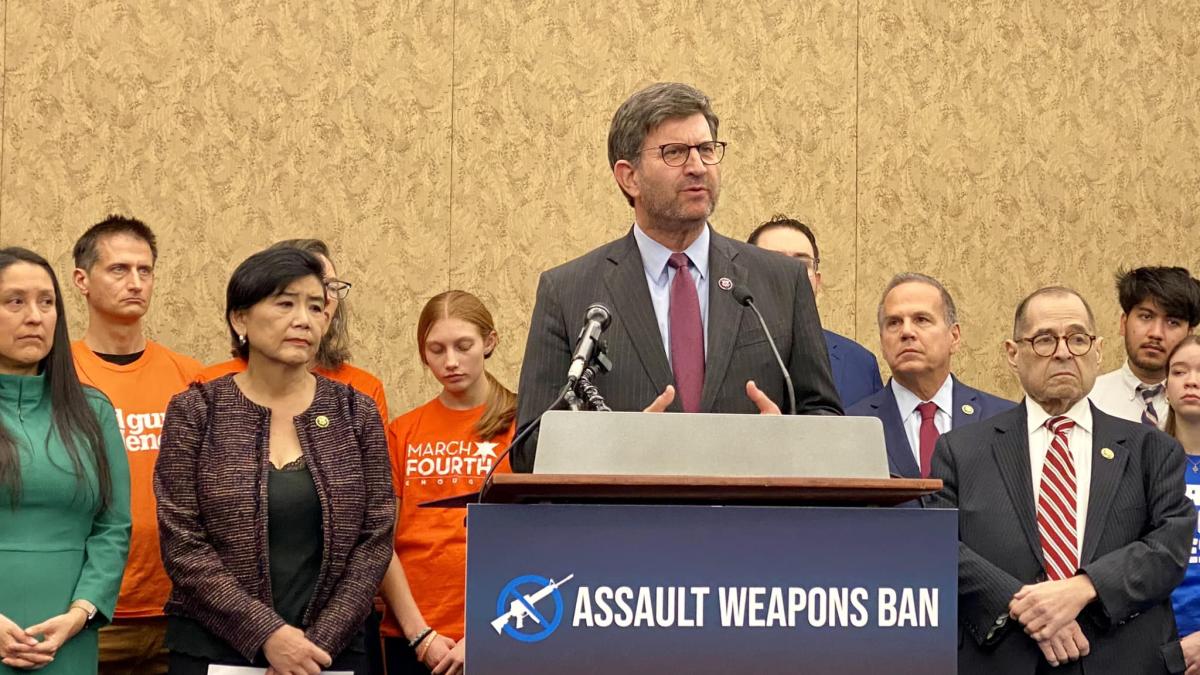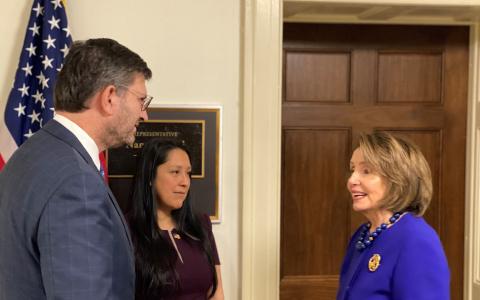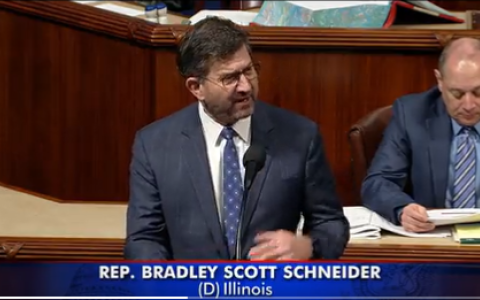Rep. Schneider Honors Gun Violence Survivors With Legislation To Prevent Future Tragedies

This week, in recognition of National Gun Violence Survivors Week, U.S. Representative Brad Schneider (IL-10) introduced and supported several pieces of critical legislation to close dangerous loopholes, ban assault weapons and high-capacity magazines, and require safe storage of guns.
Schneider helped introduce:
- The Assault Weapons Ban
- The Keep Americans Safe Act to ban high capacity magazines
- The SECURE Firearm Storage Act to prevent smash and grab gun store burglaries
- The Default Proceed Transparency Act to close gun sale loopholes
“As we recognize National Gun Violence Survivors Week, we stand with those who have lost loved ones or survived gun violence,” said Schneider. “The legislation introduced this week represents our commitment to creating a safer future for all, and I am proud to have played a part in making these critical reforms. We must continue to take meaningful steps together to prevent future shootings like the one in Highland Park on July 4th.”
To prevent future tragedies, Congressman Schneider helped introduce the Assault Weapons Ban, led by Rep. David Cicilline (RI-01) (above).
Schneider and gun violence survivor Ashbey Beasley met with Speaker Emerita Nancy Pelosi to share the Highland Park story.

Schneider also introduced two of his own bills, the SECURE Firearm Storage Act and the Default Proceed Sales Act, and co-led the Keep Americans Safe Act to ban high-capacity magazines along with his colleagues Congresswoman Diana DeGette (CO-01) and Congresswoman Dina Titus (NV-01).

Above: Rep. Schneider speaks on the House Floor in honor of Gun Violence Survivors Week
The Safety Enhancements for Communities Using Reasonable and Effective (SECURE) Firearm Storage Act, introduced with Senator Durbin, would address the problem of “smash and grab” gun store burglaries by requiring all firearms to be securely stored when a federally-licensed gun dealer is not open for business. Additionally, the bill would authorize the Attorney General to review and put forth additional security measures to reduce the risk of theft, and requires a new section on the FFL application for an applicant to describe security plans before a license can be approved.
The Default Proceed Sale Transparency Act would address the dangerous loophole that allows some gun sales to be completed without the results of a Federal Bureau of Investigation (FBI) background check. The bill would improve the National Instant Criminal Background Check System (NICS) by ensuring background checks for gun purchases require a new layer of accountability and transparency. Under current law, federal firearm licensees (FFLs) may automatically go forward ("default proceed") with the sale of a firearm if an FBI background check is not completed after three business days. Equally troubling, the FBI has no way of knowing if the sale was made unless they eventually complete the background check and then contact the dealer. This bill would change the "default proceed" process to make it more transparent and ensure we do everything possible to keep firearms out of the hands of dangerous individuals. Specifically, it would:
- require FFLs to report to the FBI when they sell a firearm to someone whose background check was not completed;
- direct the FBI to prioritize completion of background checks for these default proceed sales;
- prohibit the destruction of open NICS records which currently must be destroyed if a background check is not completed in 88 days; and
- require the FBI to publicly report, on an annual basis, the number of default proceed sales that took place, including how many times an individual who should not have been able to purchase a firearm was able to do so and the number of firearms that were eventually retrieved from said individuals; and
- require the Bureau of Alcohol, Tobacco Firearms, and Explosives (ATF) to publicly report, on an annual basis, the average time to retrieve firearms sold as a delayed denial, the number of firearms that were delayed denials retrieved in criminal investigations, and the number of firearms that were delayed denials retrieved in criminal investigations across state lines.
###